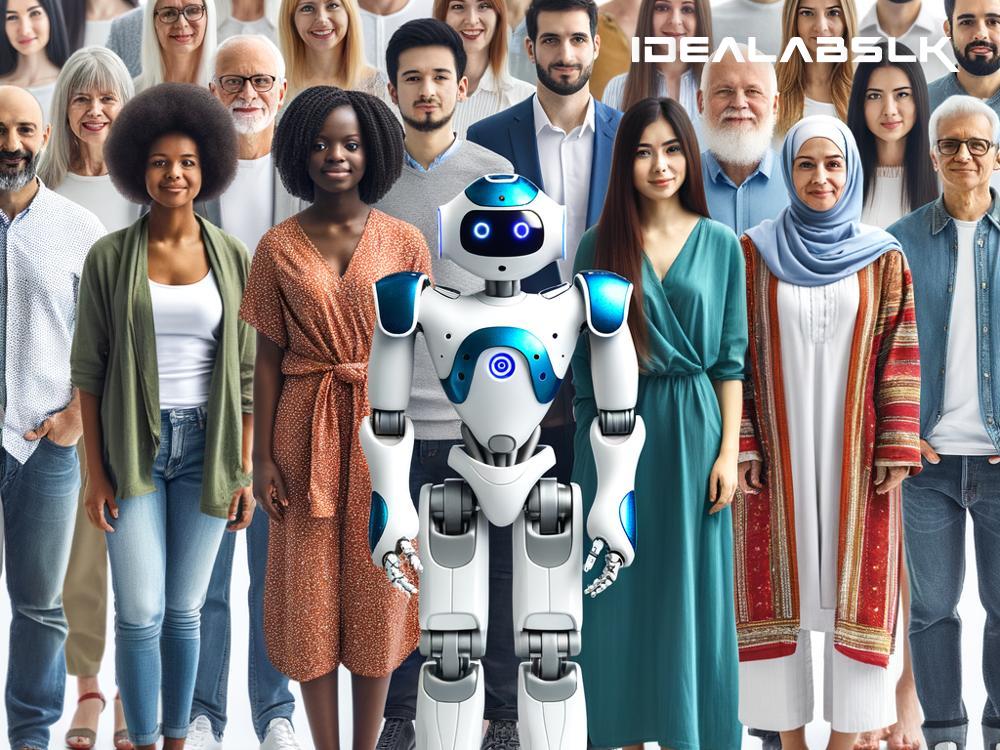Navigating the Future: Anti-Discrimination Laws & Inclusive AI Models
In our fast-paced world, technology is evolving at lightning speed, with Artificial Intelligence (AI) leading the charge. Imagine AI as a really smart assistant that can do tasks for you, make decisions, and even predict what you might need next. But here's the catch: this assistant needs to be fair and kind to everyone, not just a select few. This is where anti-discrimination laws and the push for inclusive AI models come into the picture. Let’s unpack these concepts in simple terms and explore why they're crucial for a better tomorrow.
What Are Anti-Discrimination Laws?
In essence, anti-discrimination laws are rules set by governments around the world to ensure that everyone, regardless of their race, gender, age, sexuality, or any other characteristic, is treated fairly and with respect. It's like saying, "Hey, let’s play the game of life without any cheating or favoritism." These laws make sure that no one gets left behind or treated poorly because of who they are.
But, What Does AI Have to Do with It?
Well, AI models are built by humans and learn from the data we feed them. Imagine teaching a child to recognize animals by showing them pictures. If you only show them pictures of cats and dogs, they’ll grow up thinking those are the only animals out there. Similarly, if AI systems learn from data that isn't diverse or is biased, they'll make decisions based on those flawed lessons.
For instance, an AI used for hiring might unfairly favor certain resumes, or a facial recognition system might struggle to identify faces from certain racial backgrounds. It's like having a biased judge in a talent show who only picks contestants wearing blue. Not fair, right?
The Road to Inclusive AI Models
To prevent these issues and ensure AI treats everyone equally, researchers and developers are working on creating inclusive AI models. This means designing AI systems that:
-
Understand and Respect Diversity: Just like a well-traveled person who appreciates the richness of different cultures, inclusive AI recognizes and understands diverse perspectives and needs.
-
Are Fair and Impartial: They make decisions based on facts and logic, not prejudices. Think of a fair referee in a sports game who doesn’t play favorites.
-
Learn from Balanced Data: This involves feeding AI a balanced diet of information from various sources, not just a single viewpoint. It's akin to learning about the world through a multitude of stories, not just one book.
Making AI inclusive isn't just a technical challenge; it's a societal one that requires collaboration from everyone involved in AI development, from coders to companies to governments.
Anti-Discrimination Laws: The Backbone of Inclusive AI
Anti-discrimination laws play a key role in guiding the development of inclusive AI. These laws set the bar for what’s acceptable and what’s not, pushing companies and developers to ensure their AI systems don’t end up discriminating against anyone. They remind us that technology should serve all humanity equally, not create new divides.
Governments are now beginning to catch up with the pace of technology, enacting laws and regulations that demand transparency, fairness, and accountability in AI systems. These laws encourage companies to conduct regular checks on their AI systems, ensuring they’re as unbiased and inclusive as possible.
The Benefits of Walking Hand-in-Hand
When anti-discrimination laws and inclusive AI models work together, the benefits are immense. Here are just a few:
-
Fairer Opportunities for Everyone: By eliminating biases, more people get a fair shot at jobs, loans, and other opportunities, regardless of their background.
-
Richer, More Diverse Perspectives: Inclusive AI can help uplift voices that have historically been marginalized, leading to richer solutions and innovations.
-
Trust in Technology: When people see that AI systems treat them fairly, they’re more likely to trust and embrace these technologies.
Towards a Brighter Tomorrow
The pursuit of inclusive AI models, underpinned by strong anti-discrimination laws, is not just about creating smarter machines; it’s about building a fairer, more equitable world. A world where technology reflects the best of us: our diversity, our capacity for empathy, and our quest for fairness.
By walking this path, we are not just shaping the future of technology; we are defining the kind of future we want to live in. One where every individual has the opportunity to thrive, and where AI serves as a force for good, championing equality and inclusion. Together, let's make this vision a reality.

